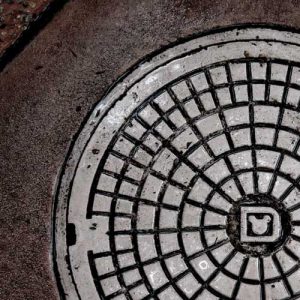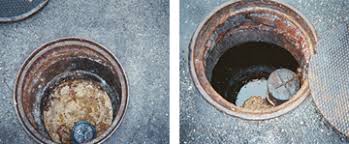Dissolve Grease in Sewer Lines
Read how you can prevent problems like bad odours and clogging.
A common cause of a sewer smell in the home is the accumulation of fat. This is often the result of putting greasy pans in the dishwasher or flushing the contents of the frying pan down the toilet. The disadvantage is that this grease solidifies in the drains and sewers and settles layer by layer. As the layer of grease thickens, the problems start to become noticeable; the stench from the sewerage can cause a sewerage smell in the house and the drains no longer run as smoothly. The smell is formed by a anaerobic conversion of the organic substances such as fat. On the page ” smell of sewage in the house – causes“You can read all about it here.
How do I prevent grease in the drain pipes?
Grease in municipal sewage systems
Municipalities and water boards have a lot of trouble with grease in the sewerage system. In many places in the sewerage system and at pumping stations a thick cake of grease forms, which ultimately causes failures in the pumping station and a reduced flow of the sewer. Eventually, these grease deposits can become almost as hard as concrete and must be removed using brute force.
The grease deposits can also cause blockages for private individuals. Not only are the blockages detrimental to the individual, but the costs are also ultimately borne by the individual via the water board tax and the sewerage levy.

Grease in sewers. Unnecessary costs!
As mentioned, municipalities and water boards many costs to tackle the fat in the sewers. In 2012, a water board calculated that purifying 1 litre of oil costs €2.80! That is more than twice the retail price! This high price is because fats are difficult to break down during the purification process.
Within the municipalities, the fat deposits are “cut” out of the sewage system with a special cutter. This cutter is used with the aid of water under very high pressure, sometimes as much as 1000 bars! It is important that the fatty deposits are removed properly, otherwise they can cause problems with the pumping stations because the fatty deposits can clog up the pumps and suction pipes.
Fixing grease in sewers? Here's what you need.
A good biological solution for grease in sewers and drains is Bio-setone. This is a product based on microorganisms Which break down the fat in a way that no stench is formed. This keeps your drains free and odourless.


